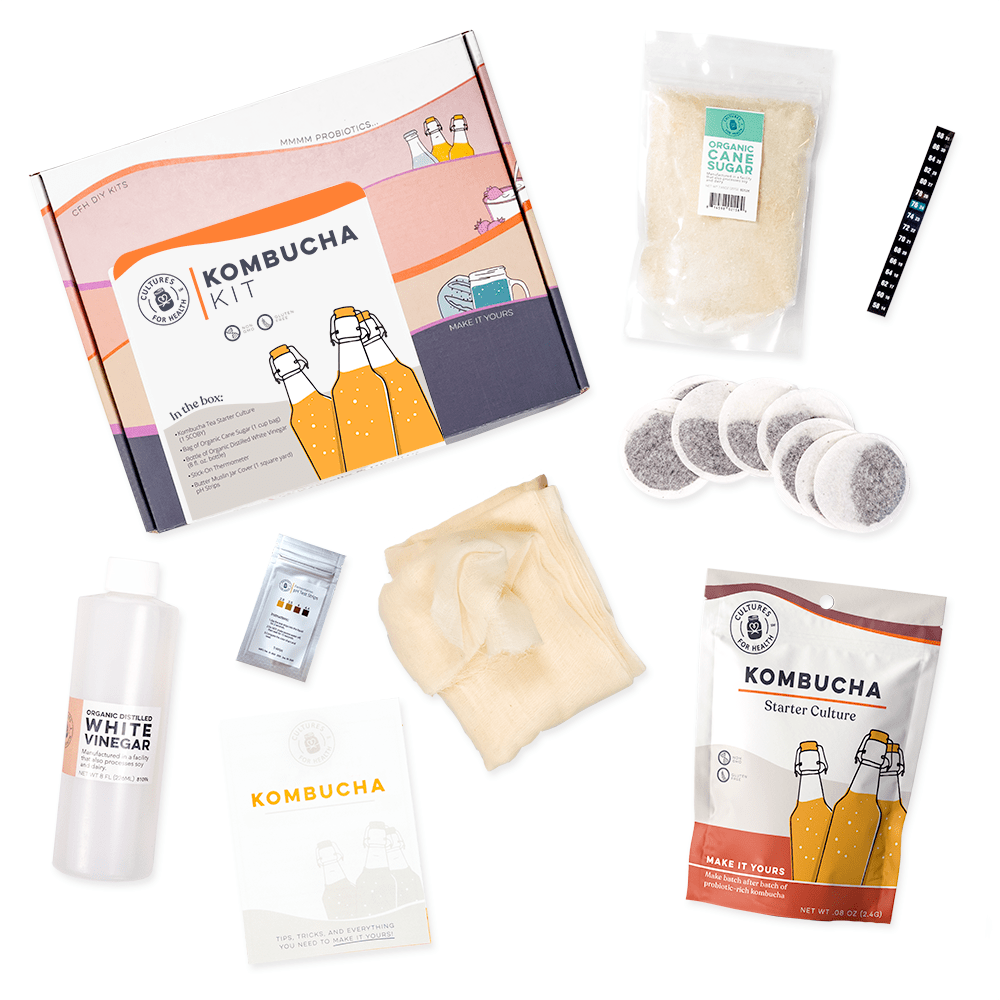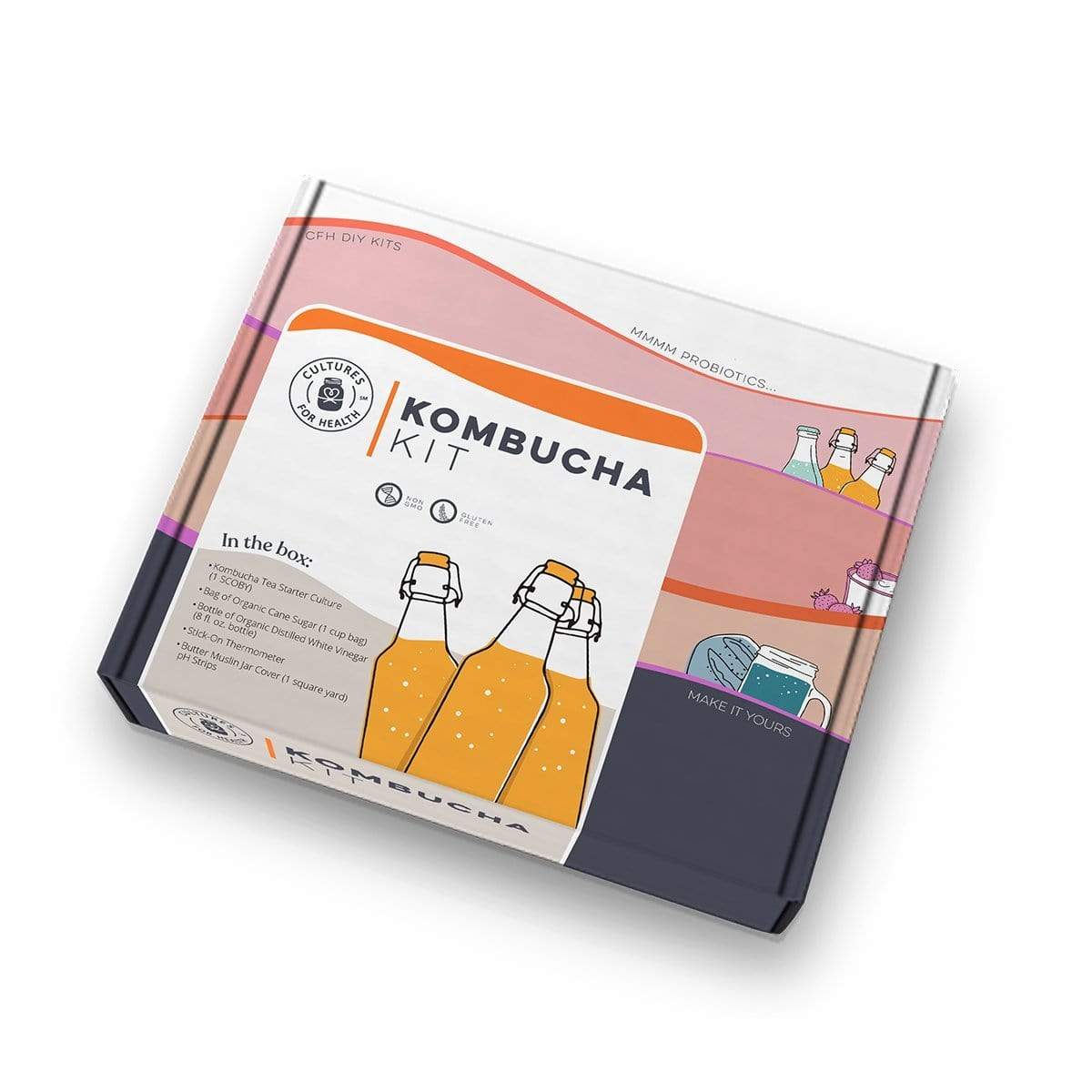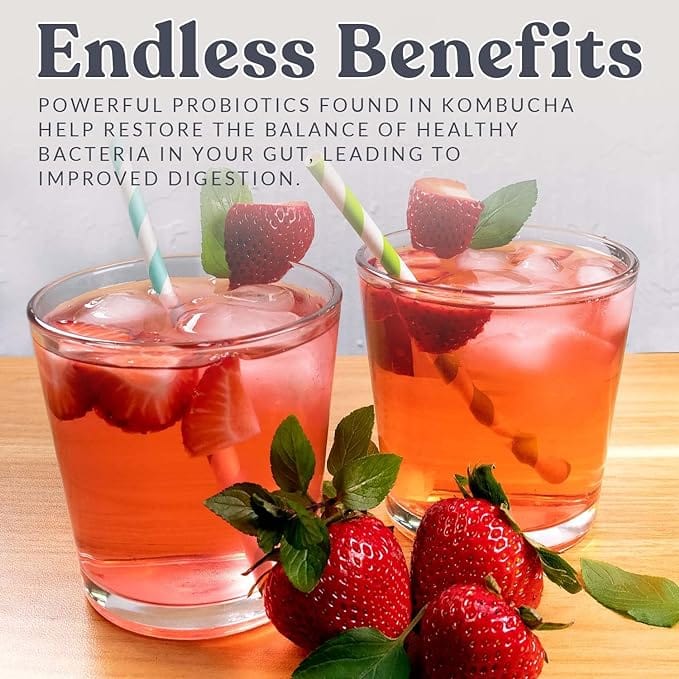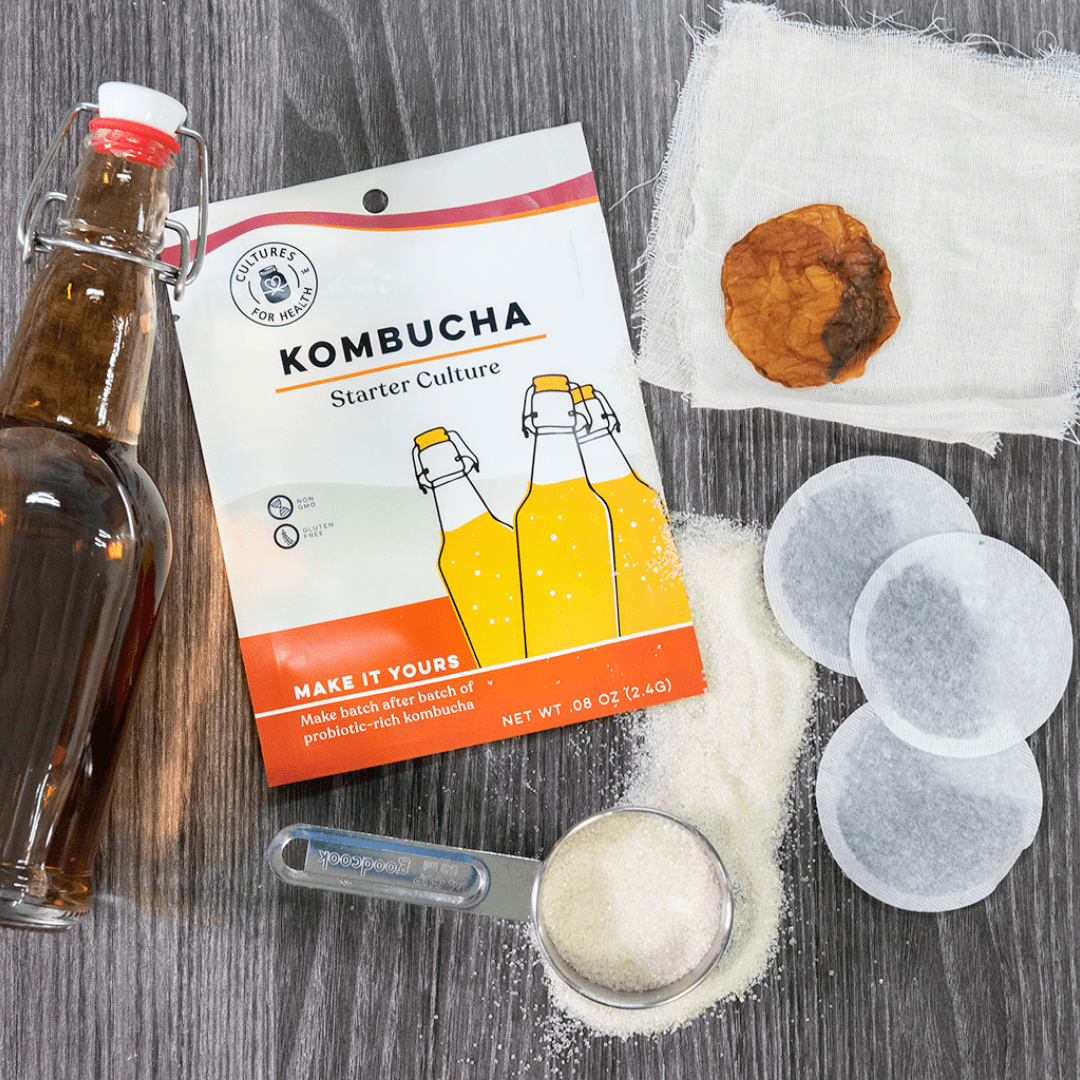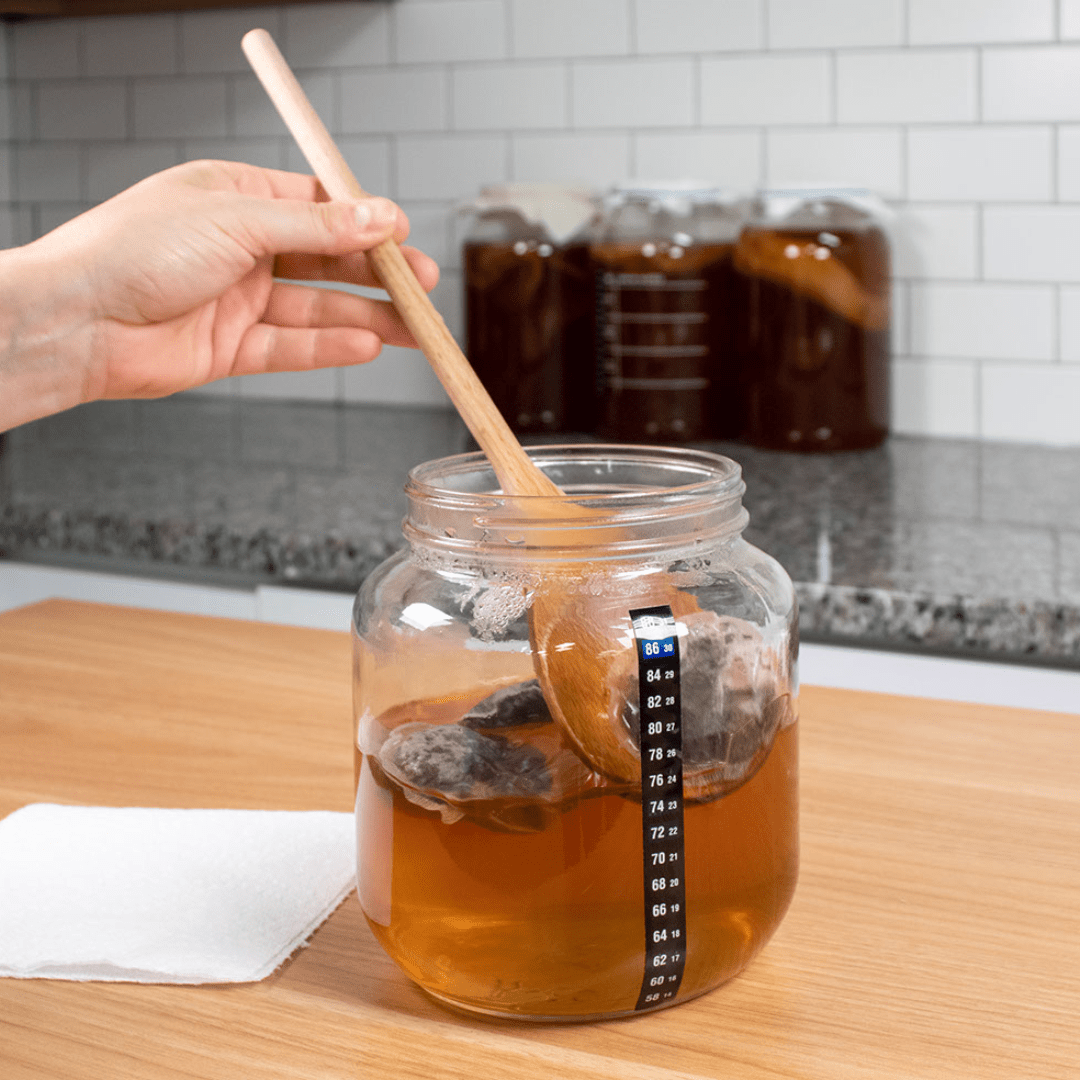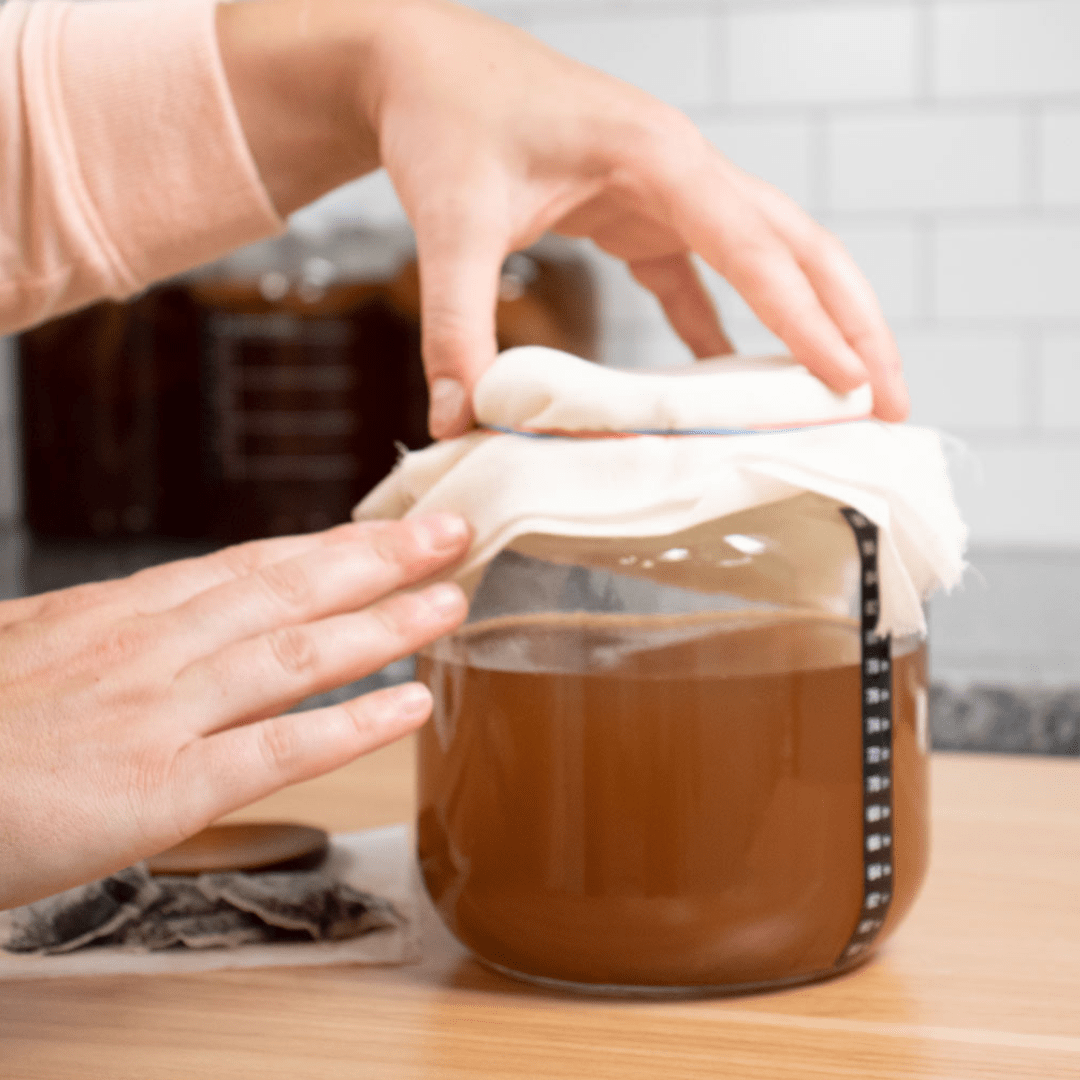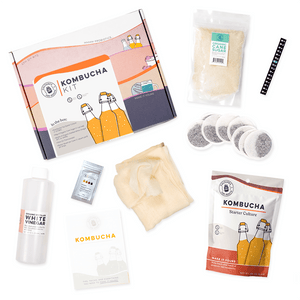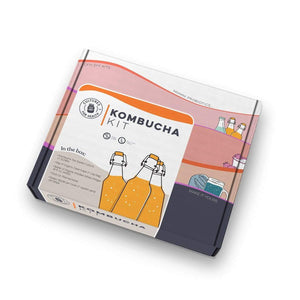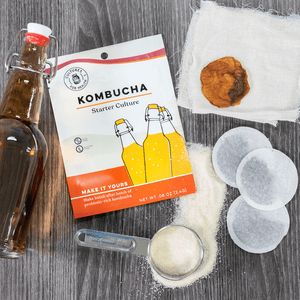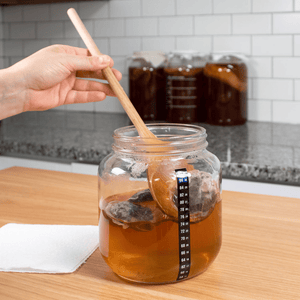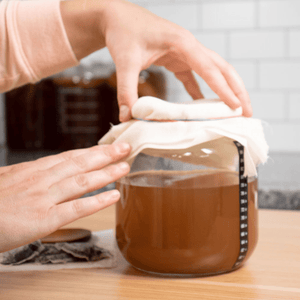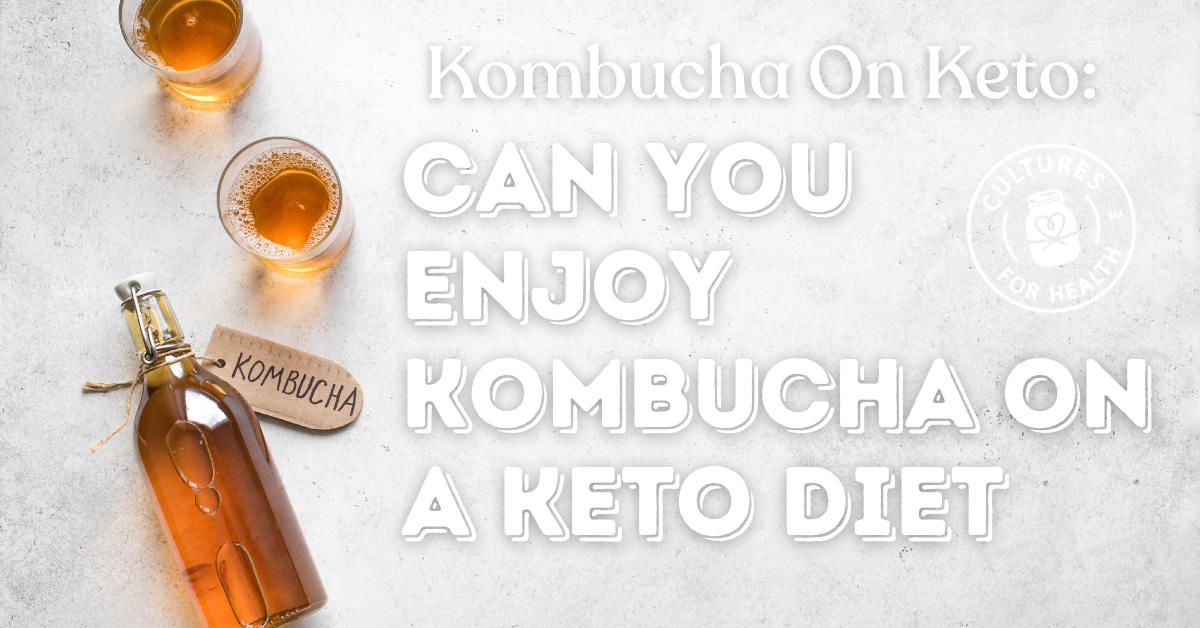
Kombucha is an age-old fermented drink purported to be full of beneficial bacteria, which are responsible for a myriad of health benefits, but some people say that consuming too much kombucha or the wrong type of kombucha may have harmful side effects. What’s the truth?
What Is Kombucha—and Is It Healthy?

Kombucha is a slightly carbonated, probiotic tea drink made with sugar, bacteria, and yeast. Its sour and sweet taste has been enjoyed since around 220 B.C.E. Vinegar, B vitamins, and a number of other chemical compounds give this low-calorie fizzy drink its healthy kombucha reputation and varied tastes.
Sugar and caffeine are present in small amounts, and as it is a fermented beverage, it contains alcohol too. The amount of sugar, alcohol, and caffeine is mentioned on the labels of store bought kombucha, as they can vary. Kombucha also offers some probiotic and antioxidant benefits, which help improve the immune system and support a healthy gut microbiome. 
A SCOBY Helps To Keep a Kombucha Culture Healthy
What is a scoby in kombucha? A kombucha SCOBY, also known as the “kombucha mother,” plays an important role in making kombucha. The word SCOBY stands for Symbiotic Colony Of Bacteria and Yeast. They play an important role in stabilizing kombucha colonies and help good bacteria to grow, take over, and stop bad bacteria.
The main reason for using a kombucha mother is that it acts as a big buffer for beneficial bacteria. When new tea is added in a kombucha brewer, good and bad bacteria attempt to consume this new food source. A SCOBY acts as a home for the beneficial bacteria and they are able to colonize all the newly added sources of food before the harmful bacteria. This colonization is what makes the kombucha safe and flavorful.
Health Dangers of Kombucha

Let's separate facts from fiction when it comes to the potential dangers of kombucha, and discuss the risks of making and drinking kombucha.
Is Kombucha Alcoholic?
The short answer to the question “Is kombucha alcoholic?” is yes, kombucha does have small amounts of alcohol. In recent years there have been reports that claim that kombucha has a lot more alcohol in it than people think, but kombucha has less than 0.5–1% alcohol by volume—which means that almost one gallon of kombucha has the same amount of alcohol as one bottle of beer.
Although homemade kombucha can have a higher alcohol content than commercial, this depends on how long you ferment it, how much sugar you feed it, and at what temperature it was fermented. If you’re concerned and want to test the amount of alcohol in homemade kombucha, you can buy an alcohol measuring tool, like a hydrometer or refractometer. This is a cheap way to put your mind at ease about consuming high alcohol-content kombucha.
Is There Caffeine in Kombucha?
Simply, the answer to this question is yes, there is some caffeine in kombucha…but the good news is that it is present in such a minute amount that it will have no real impact on your health.
Caffeine is an alkaloid that is found in coffee beans, tea leaves, and many other plants too. It is found in other edible products too, such as chocolates, cola drinks, red wine, and many more. Caffeine can increase energy levels, mental performance, and alertness. It is also linked to relieving stress and anxiety.
The amount of caffeine present in kombucha is not as high as that present in tea or coffee. Kombucha has about 1–2 milligrams of caffeine per ounce (about 10–15 mg/8 fl oz), whereas coffee has about 11–12 milligrams per fluid ounce. Kombucha has about one-third the amount of caffeine that you would find in one cup of black tea. Kombucha is a very weak source of caffeine compared to other beverages like tea or coffee.
Is Kombucha Full of Sugar?

Kombucha is made from sweet tea, so at first glance, it might seem like a sugary beverage. However, although sugar plays a major role in the fermentation process, much of it is consumed during this process. If we brew kombucha with organic sugar cane as its energy source, the resulting kombucha will have higher levels of magnesium, calcium, and potassium.
The yeast present in a SCOBY feeds on the sugar in sweet tea and converts it into carbon dioxide and ethanol, which means that when you drink kombucha, most of the sugar will have been fermented and only a fraction of the original sugar will remain. The other component of the SCOBY is the bacteria responsible for the breakdown of ethanol, produced by the yeast into amino acids, minerals, and vitamins. Instead of increasing the blood sugar level, kombucha actually balances the blood sugar level by breaking down sucrose to fructose and glucose during fermentation, and making it easier for the body to use.
Kombucha is on the low sugar end of the spectrum as compared against other drinks with 2–6 grams of sugar per 8 oz serving, whereas Coke has 24 grams, and Red Bull has 27 grams.
Can Kombucha Make You Sick?
While generally considered safe for healthy individuals, there are some potential risks associated with consuming kombucha, particularly if it is not prepared or stored properly. These risks include contamination, alcohol content, acidity, and allergic reactions, as we’ve already mentioned.
To minimize the risk of getting sick from drinking kombucha, it is important to purchase it from a reputable source, or make it yourself and consume it in moderation, especially as you’re starting out. As with all fermented foods, there is a small degree of experimentation involved in the process of making your own kombucha, but with proper care and attention, it can be a safe and delicious addition to your diet.
Ways to Enjoy Kombucha Safely
There are some things you can do to make sure you’re balancing kombucha’s safety and benefits:
-
Brew your kombucha in a sanitized glass container. This will minimize the possibility of unwelcome bacteria gaining a foothold.
-
Keeping equipment clean and your kombucha at the proper temperature will also help minimize unwanted microbes.
-
If you’re not going to make your own kombucha, make sure to read the labels and know what’s inside.
-
Women who are breastfeeding or pregnant might also wish to avoid kombucha since it contains a raw form of bacteria.
Kombucha Starter Kit
Kombucha Health Benefits
One of the main health benefits of kombucha is the high concentration of probiotics that it contains. Probiotics are good bacteria that protect our bodies and fight off harmful bacteria.
Plus, the presence of bacteria and yeast in kombucha promote healthy digestion by helping us process the heavy fats and proteins in our food. They also help to improve nutrient absorption and can even prevent ulcers.
Kombucha’s effect on the immune system is also very positive. It helps to boost our body’s ability to fight off infections and other illnesses.
Some of the other health benefits of kombucha:
-
Reduces allergic reactions
-
Reduces cholesterol levels
-
Reduces inflammation in the body
-
Fights aging wrinkles
-
Improves hair and nail health
-
Reduces stress
-
Relieves headaches
-
Can kill germs and bacteria
Can You Drink Kombucha Every Day?

The answer varies from person to person, because it is highly dependent on how your body reacts to it. Some people can drink a whole gallon and feel fine, while others might experience stomach issues with just one cup of kombucha.
There are a few factors to consider for how often you should drink kombucha:
-
Age of the person and the current state of their health
-
Tolerance for caffeine, sugar, and other ingredients
-
The type of kombucha
The Center for Disease Control (CDC) recommends that one to three 4 oz cups per day are safe to consume and will not cause any harm, so this range should be a safe place to start.
The Best Way To Add Kombucha To Your Diet
If you're drinking kombucha for the first time, start with a small amount, and after a few days see how you feel. If you feel good, you can get heaps of probiotics by drinking between 8 to 16 ounces per day; but if you suffer from some health or dietary problem, consult your doctor before starting to drink kombucha.
Moreover, probiotics should be consumed from a variety of different food sources, like yogurt, kimchi, and cheeses, to keep a balanced gut fauna. If you want to experience kombucha fermentation at home, our kombucha starter is a perfect way to get started.













